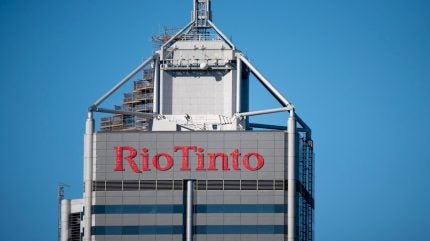
Rio Tinto is reportedly set to establish a standalone lithium division following the completion of its $6.7bn acquisition of Arcadium Lithium.
The acquisition was announced in October last year and is expected to close by July 2025. It highlights the value Rio Tinto sees in Arcadium’s engineering expertise.
Arcadium employs around 2,400 people across nine countries, with 84% of its revenue derived from Asia, the global hub for lithium demand.
This positions Arcadium for growth as electric vehicle projects increase, particularly those supported by the US Inflation Reduction Act.
Arcadium’s shareholders approved the sale last month, according to a report by Reuters. The acquisition marks Rio Tinto’s largest deal in over a decade.
Due to its unfamiliarity with integrating an entire company, Rio Tinto plans a gradual absorption of Arcadium.
This approach aims to retain talent and preserve the deal’s value, according to sources familiar with the matter.
The new entity, Rio Tinto Lithium, which is planned to be established once the transaction is finalised, will manage the $2.5bn Rincon project in Argentina.
However, it will not include the Jadar lithium project in Serbia, to “ensure we give laser focus to successful integration once the transaction completes,” Rio’s CEO Jakob Stausholm told employees.
The acquisition positions Rio Tinto as the world’s third-largest lithium producer, a critical component in batteries for electric vehicles, amid rising demand.
A leading iron ore and copper producer, Rio Tinto is now evolving into a processor of high-end, low-carbon minerals essential for the energy transition.
Its minerals division has faced approval challenges in Serbia but is expanding lithium production at Rincon and is shortlisted for a partnership with Chilean state miner Codelco.
In December, Rio Tinto marked a milestone at Rincon by producing its first tonne of lithium through direct lithium extraction, a technique aimed at speeding up production.
Despite this milestone, the process took three years to achieve. The minerals division also produces diamonds, boron, and titanium dioxide.



